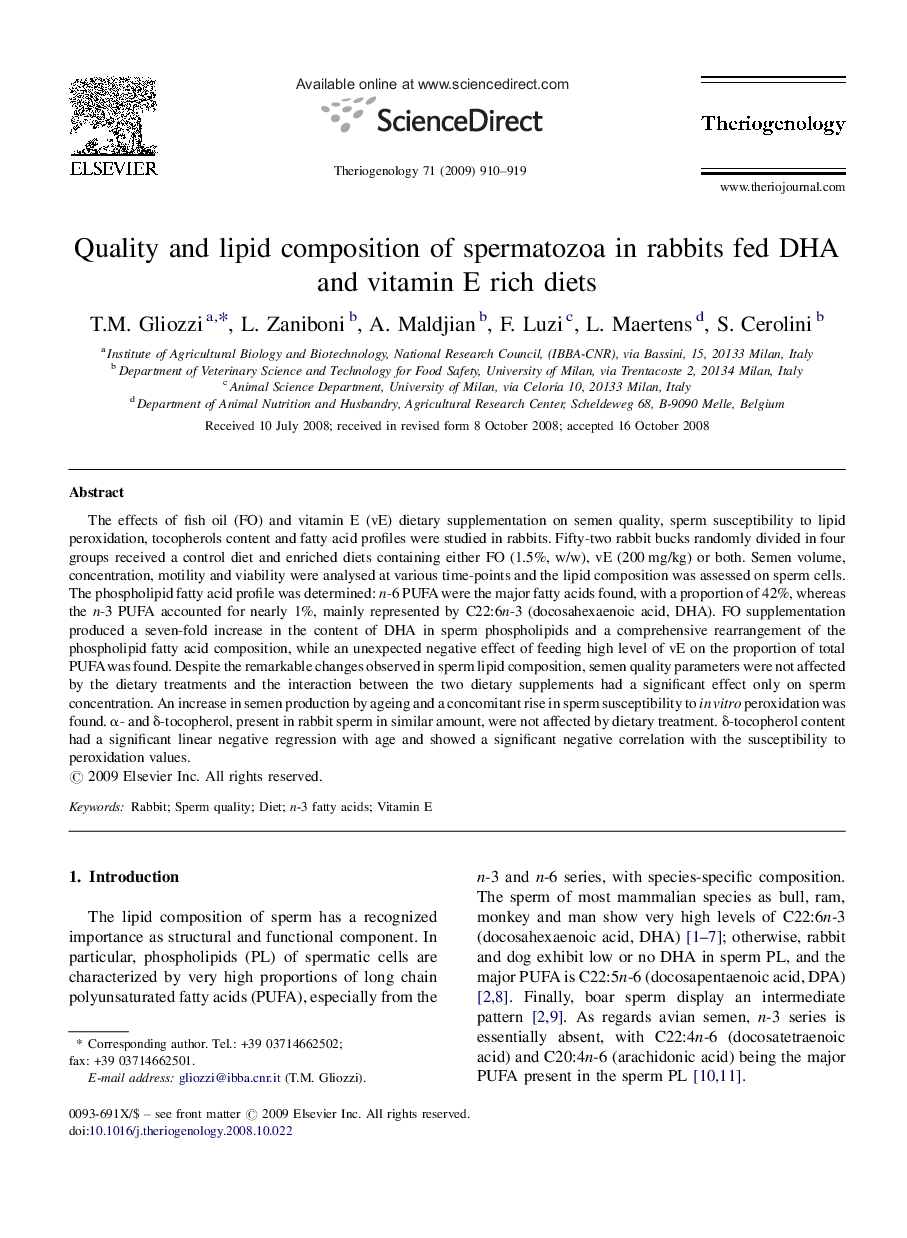| Article ID | Journal | Published Year | Pages | File Type |
|---|---|---|---|---|
| 2098083 | Theriogenology | 2009 | 10 Pages |
The effects of fish oil (FO) and vitamin E (vE) dietary supplementation on semen quality, sperm susceptibility to lipid peroxidation, tocopherols content and fatty acid profiles were studied in rabbits. Fifty-two rabbit bucks randomly divided in four groups received a control diet and enriched diets containing either FO (1.5%, w/w), vE (200 mg/kg) or both. Semen volume, concentration, motility and viability were analysed at various time-points and the lipid composition was assessed on sperm cells. The phospholipid fatty acid profile was determined: n-6 PUFA were the major fatty acids found, with a proportion of 42%, whereas the n-3 PUFA accounted for nearly 1%, mainly represented by C22:6n-3 (docosahexaenoic acid, DHA). FO supplementation produced a seven-fold increase in the content of DHA in sperm phospholipids and a comprehensive rearrangement of the phospholipid fatty acid composition, while an unexpected negative effect of feeding high level of vE on the proportion of total PUFA was found. Despite the remarkable changes observed in sperm lipid composition, semen quality parameters were not affected by the dietary treatments and the interaction between the two dietary supplements had a significant effect only on sperm concentration. An increase in semen production by ageing and a concomitant rise in sperm susceptibility to in vitro peroxidation was found. α- and δ-tocopherol, present in rabbit sperm in similar amount, were not affected by dietary treatment. δ-tocopherol content had a significant linear negative regression with age and showed a significant negative correlation with the susceptibility to peroxidation values.
